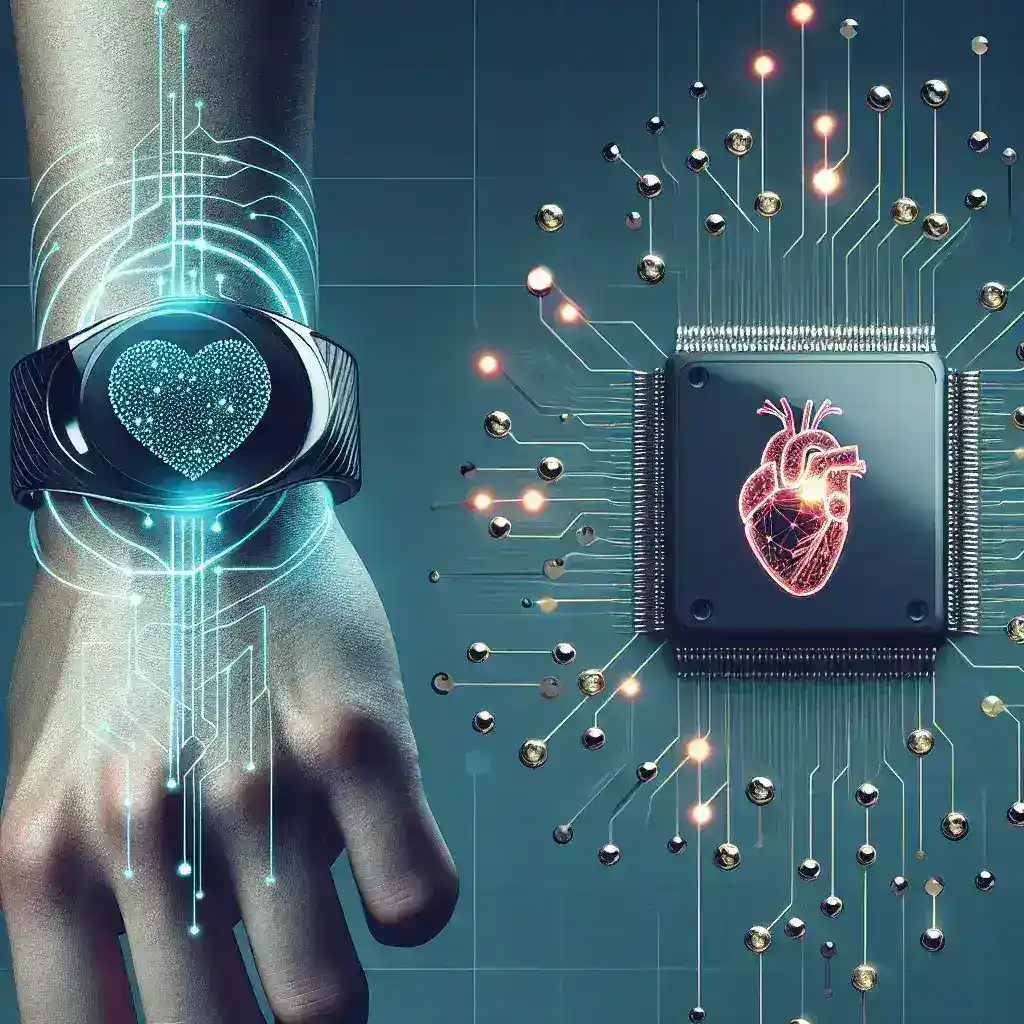Introduction
The integration of artificial intelligence (AI) in wearable health devices represents a significant advancement in health technology. These devices, ranging from fitness trackers to smartwatches, are becoming increasingly capable of providing users with profound insights into their health. This article delves into how AI is revolutionizing wearables and the benefits it brings to users.
Evolution of Wearable Health Devices
Wearable health devices have evolved significantly over the past decade. Initially focused on simple tasks like step counting, their functionalities have expanded to include heart rate monitoring, sleep tracking, and more. The introduction of AI into these devices has further enhanced their capabilities, enabling them to analyze vast amounts of data quickly and provide personalized health recommendations.
Key Features of AI in Wearable Health Devices
- Data Analysis: AI algorithms can process and analyze data collected from various sensors in real-time, offering immediate feedback and insights.
- Personalized Health Recommendations: By understanding individual health patterns, AI can suggest tailored exercise routines, dietary plans, and wellness tips.
- Predictive Analytics: Advanced machine learning models can predict potential health issues by analyzing trends and anomalies in user data.
- Enhanced User Experience: AI can improve user interaction by providing voice commands, intuitive notifications, and seamless usability.
Benefits of AI-Enabled Wearable Health Devices
1. Improved Monitoring
AI enhances the monitoring capabilities of wearable devices. Users can track their health metrics like heart rate, blood pressure, and sleep patterns, receiving real-time alerts about any irregularities. This proactive monitoring helps users take corrective actions swiftly.
2. Increased Engagement
With personalized insights and interactive features, AI-driven wearables encourage users to engage more with their health. This engagement fosters healthier lifestyles as users receive motivation and guidance tailored to their unique needs.
3. Data-Driven Decisions
AI empowers users with data-driven decisions by providing actionable insights that can lead to healthier lifestyle choices. For instance, if a wearable detects a decrease in physical activity levels, it can recommend specific exercises to help users stay active.
Challenges and Future of AI in Wearables
Despite the advantages, challenges such as data privacy concerns and the need for regulatory standards persist. However, as technology advances, the potential for AI in wearable devices is boundless. Future developments may include enhanced connectivity and more sophisticated health monitoring capabilities, driving the market toward a more data-integrated approach to health management.
Conclusion
The role of AI in wearable health devices is transforming how individuals manage their health. With ongoing innovations, these devices are poised to become essential tools for health monitoring, promoting a future where personal health management is more accessible and effective.

